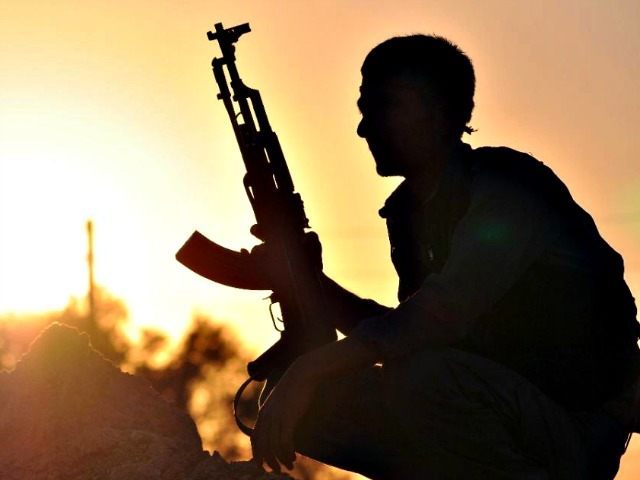Heavy weapons from the United States destined for Iraq’s Kurdish peshmerga forces fighting the Islamic State (ISIS/ISIL) have arrived in Kuwait and are expected to be delivered in a month, a senior peshmerga official told Rudaw.
That revelation could mark a change in the U.S. efforts against ISIS. The Obama administration has been reluctant to directly arm the Iraqi Kurds. It insists that all U.S. weapons to Iraq be sent to the central government in Baghdad.
Some lawmakers form both sides of the aisle have proposed allowing the administration to go around the Iraqi central government and directly arming the Kurdish peshmerga, one of the more capable fighting forces currently taking on ISIS.
However, those efforts failed.
U.S. lawmakers and Kurdish officials have complained about slowed weapons delivery to Kurds and a lack of arms to fight ISIS.
Jabar Yawar, chief of staff to the Peshmerga ministry, signaled that the U.S. may be changing its approach to arming the Kurds.
“The USA decided to give heavy weapons to the Peshmerga,” he told Rudaw. “The weapons have arrived in Kuwait and in a matter of one month they will be transferred to the Kurdistan region.”
Yawar said the U.S. weapons include “heavy artillery, armored vehicles, Humvees and Mine-Resistant Ambush Protected [MRAP vehicles].”
This week, the Pentagon also announced that up to 200 additional U.S. special operation forces would be deployed to assist the Iraqi forces and Kurdish peshmerga troops combat ISIS. Some of the American troops are expected to participate in ground combat operations despite President Obama’s pledge not to place U.S. combat boots on the ground in Iraq or Syria.
There are currently 3,500 U.S. service members in Iraq.
The additional U.S. force is expected to be permanently based in Iraq, but it will also conduct ground combat raids against ISIS in Syria, NBC News reported.
Current law dictates that the U.S. government is only allowed to send weapons to governments internationally recognized as sovereign – not to autonomous regions within countries like Iraq’s Kurdistan Regional Government (KRG).
Therefore, Kurds must wait for the Iraqi central government to share the U.S. military equipment since they cannot receive any of it directly.
“The policy of this Administration is clear and consistent in support of a unified Iraq, and that we’ve always said a unified Iraq is stronger, and it’s important to the stability of the region as well,” Marie Harf, a State Department spokeswoman told reporters in April. “Our military assistance and equipment deliveries, our policy remains the same there as well, that all arms transfers must be coordinated via the sovereign central government of Iraq. We believe this policy is the most effective way to support the coalition’s efforts.”
The Shiite-dominated, Iran-influenced Iraqi central government in Baghdad argues that if Kurdistan receives direct military support from the U.S., it would be able to push more forcefully for full independence in the future.

COMMENTS
Please let us know if you're having issues with commenting.